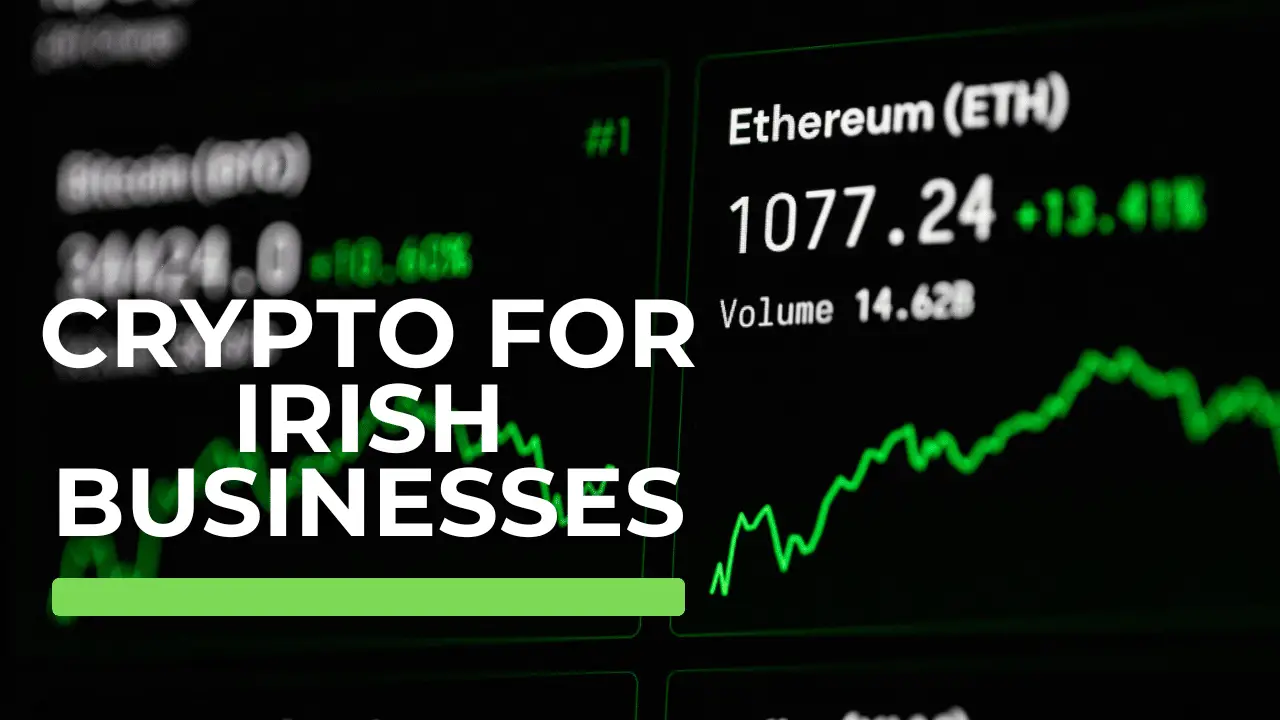Cryptocurrency has grown to be massively popular in Ireland as of late. According to a recent Prime Time documentary on RTE, over five hundred thousand people in the country own some crypto assets.
But what is the regulatory status of cryptocurrencies in Ireland? In this blog post, we will lay out the current status in Ireland and what is coming down the tracks.
Currently, there are no regulations that prohibit the use of cryptocurrencies in Ireland. It is also unlikely that we will ever see a conservative approach or bans similar to the approach taken by China.
The two most important pieces of legislation that affect crypto assets and service providers in Ireland are:
- The 5th Anti-money laundering directive of the EU
- Markets in Crypto-assets Regulation (MiCA)
Anti Money Laundering Legislation now applies to VASPs
In April of 2021, the latest Anti-Money Laundering Directive (5AMLD) from the European Union was transposed into Irish law. This was the first time AML legislation was extended to cover VASPs (Virtual Asset Service Providers).
What is a VASP (Virtual Asset Service Provider)?
The FATF defines a “virtual asset service provider” or VASP as:
Any natural/legal person that conducts one or more of the following activities:
- Exchange between virtual assets and fiat currencies
- Exchange between one or more forms of virtual assets
- Transfer of virtual assets
- Safekeeping and/or administration of virtual assets or instruments enabling control over virtual assets
- Participation in and provision of financial services related to an issuer’s offer and/or sale of a virtual asset
An example of a VASP operating in Ireland is Coinbase who allows you to exchange fiat to crypto, transfer virtual assets, and provide custody services to safekeep your assets.
Any VASPs that operate in Ireland now have to register with the Central Bank and a public register of approved VASPs will be viewable.
VASPs that were already operating in Ireland before this new directive was transposed into Irish law were given three months to register and comply.
At the time of writing (January 2022), this deadline has long passed and the register on the central bank’s website has not been updated since 7 May 2021. It is unclear whether VASPs have been complying with the new directive or whether it is an administrative delay by the central bank.

New responsibilities of VASPs:
Here is a list of what VASPs will be required to do to comply with the EU Directive:
- carrying out an ML/TF risk assessment of their business;
- undertaking customer due diligence (CDD) of their customers;
- carrying out ongoing monitoring of customers and customer transactions;
- filing Suspicious Transaction Reports (STRs) with Financial Intelligence Unit (FIU) Ireland and the Revenue Commissioner in instances where money laundering or terrorist financing is known or suspected;
- maintaining and implementing AML/CFT policies, procedures and controls;
- retaining appropriate records; and
- providing AML/CFT training to all staff on an ongoing basis.
Markets in Crypto-assets Regulation (MiCA)
There is more far reaching legislation on the way. A draft new Digital Finance Package has been proposed which will cover Fintech as well as crypto-assets.
The draft text of the Markets in Crypto-assets Regulation (MiCA) is included in this package. Although it is not expected to come into law until 2024, it gives us an insight into how crypto assets are likely to be regulated in the Eurozone in the years to come.
This legislation contains definitions which categorise each type of crypto-asset:
Here is a summary of these definitions:
- Asset-referenced token: a type of crypto-asset that purports to be stable by value by referring to the value of several fiat currencies that are legal tender, one or several commodities or one or several crypto-assets, or a combination of such assets.
- E-money tokens: a type of crypto-asset the main purpose of which is to be used as a means of exchange and that purports to maintain a stable value by referring to the value of a fiat currency.
- Utility token: a type of crypto asset which is intended to provide digital access to a good or service available on DLT and is only accepted by the issuer of that token.
Much of this proposal is dedicated to Stablecoins and e-money tokens. In future, any stablecoins will face a much more onerous task when it comes to the issuance and will likely need to be authorised and licensed.
Many fear regulation in crypto, but this will be a step in the right direction and provide legal certainty to help it thrive in the future. On a positive note, the EU is not set out to stifle innovation in the industry and is more concerned with investor protection and the stability of the market.
A guide to the proposed regulations can be found here:
A lot has happened since this regulation was initially proposed, we have seen massive growth in Defi with billions now locked up in different protocols such as Aave and Compound. We also saw a boom in NFT sales and the use of NFTs in finance. So it is expected that this will be a fluid document that will see some updates before it comes into force.
Although there is still no strong regulatory presence for crypto in Ireland that does not mean that it is not taxable. We have a further blog post that explains exactly how crypto assets are taxed in Ireland.
This blog post is for informational and educational purposes only and should not be construed as financial advice.





